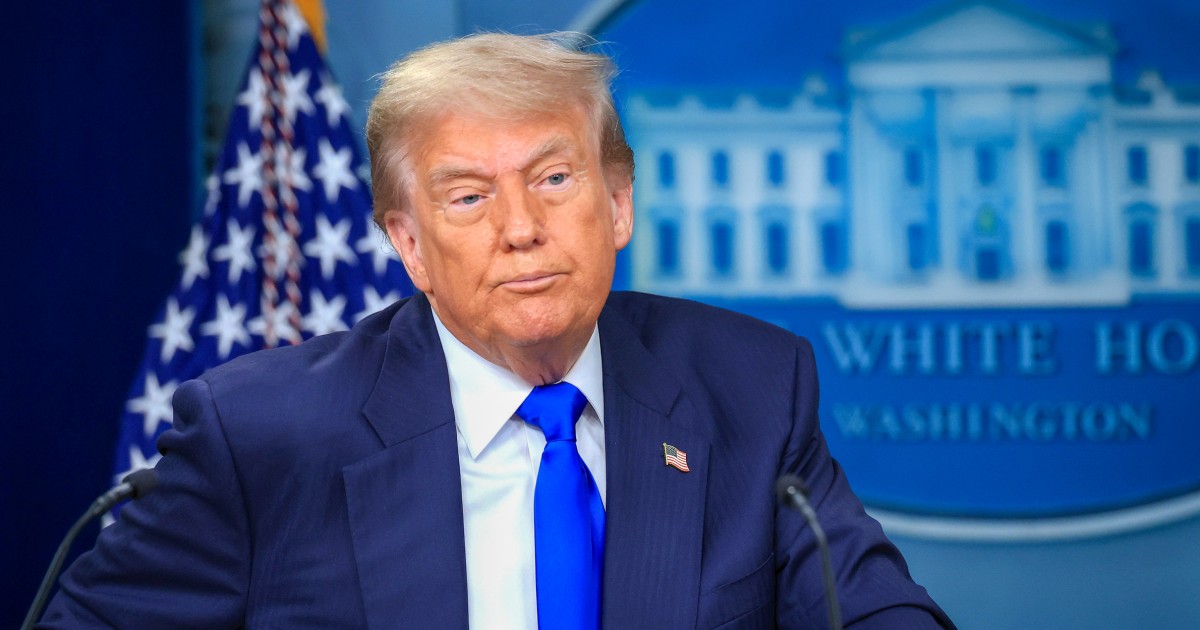The novel and untested approach has been introduced by Democratic lawmakers in at least four states.
Democratic legislators mostly in blue states are attempting to fight back against Donald Trump’s efforts to withhold funding from their states with bills that aim to give the federal government a taste of its own medicine.
The novel and untested approach — so far introduced in Connecticut, Maryland, New York and Wisconsin — would essentially allow states to withhold federal payments if lawmakers determine the federal government is delinquent in funding owed to them. Democrats in Washington state said they are in the process of drafting a similar measure.
These bills still have a long way to go before becoming law, and legal experts said they would face obstacles. But they mark the latest efforts by Democrats at the state level to counter what they say is a massive overreach by the Trump administration to cease providing federal funding for an array of programs that have helped states pay for health care, food assistance and environmental protections.



Yeah, I think we just disagree about this. You’re implying that letting this go forward would be giving in to the state acting capriciously, but that’s really not what this is. The states have literally already started spending the money–hiring contractors and so forth to physically build things–based on the funds that the government had already decided to send them, but is now arbitrarily yanking back. Note that this is different from “we are accustomed to receiving funds for this”; instead it’s “you made a specific commitment to provide X funds for Y purpose, and are now suddenly stiffing us on the bill.” In that light, withholding a portion of the funds that the state ostensibly owes the government in order to make up that unexpected shortfall really isn’t that unreasonable. You keep portraying this as them withholding money “because they disagree with federal policies,” and saying “what those policies are and why is completely irrelevant,” but the policy they disagree with is the sudden and arbitrary withholding of previously-committed funds to the state, and they are withholding state funds to the feds as a direct way of offsetting that deficit. That makes it feel extremely relevant.
I just don’t think it absolutely has to be the slippery slope you’re portraying it as. I’m getting into technicalities because we’re discussing the law and precedent, and technicalities matter a whole freaking lot when you’re dealing with the law. There’s a reason descending into technicalities is referred to in roleplaying games as “rules lawyering”.
And as for highly populous states having a larger influence on federal policy…isn’t that just democracy? Power derives from the consent of the governed, and at the moment that consent is at a particularly low ebb.
In any case, yeah, I think we just disagree on this, and it’s all moot in the face of the specific court in power. I’ll let you get the last word if you want to reply, but I’ll probably drop it at this point.
It’s not saying the states are acting capriciously or even unreasonably, it’s just that the system would treat it as such
The system would declare the proper remediation is the states suing for their funds and having the justice system fix it. If the justice system so orders the dispersement and federal gov refuses to pay out, then I could imagine the settlement terms permitting the state to deduct owed funds from their payments. If the justice system fails to rule appropriately, then the state doesn’t have legal recourse, but it may still make sense to take their recourse anyway.